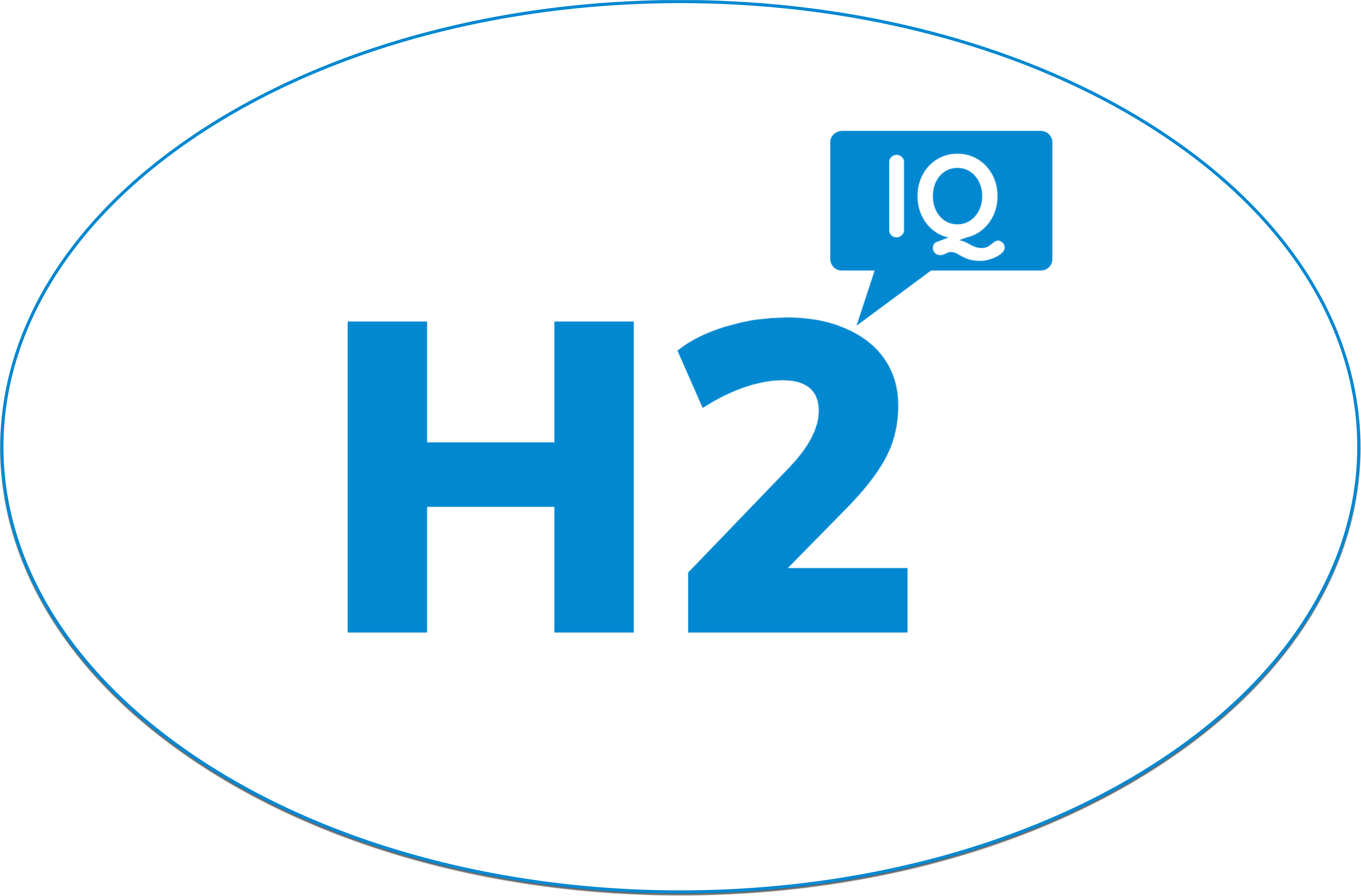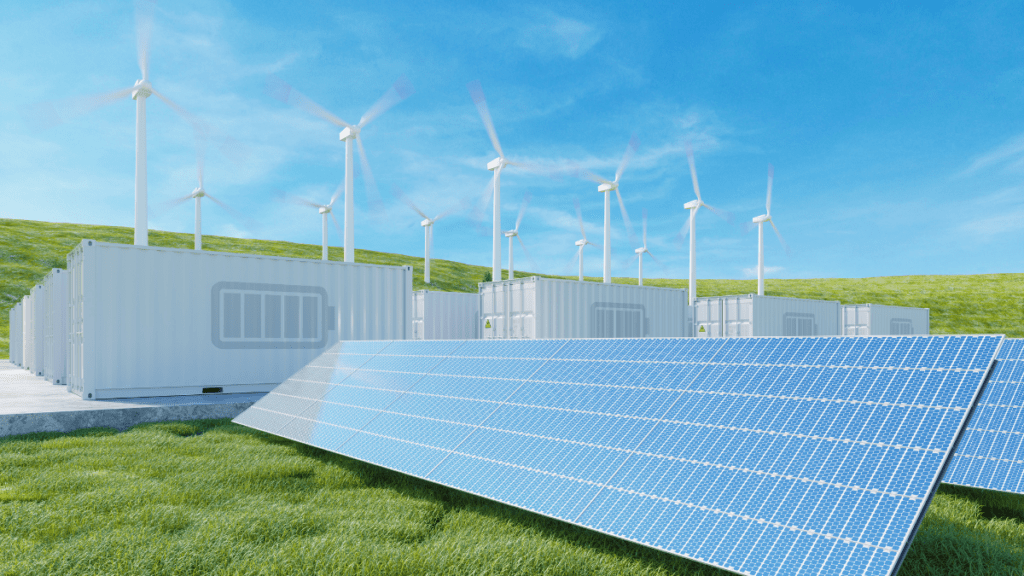
(HARTFORD, CT) – The States of Connecticut, New York, New Jersey, Maine, Rhode Island, Vermont and the Commonwealth of Massachusetts today announced the submission of the group’s proposal for a Northeast Regional Clean Hydrogen Hub (NE Hub) to the U.S. Department of Energy to compete for a $1.25 billion share of the $8 billion in federal hydrogen hub funding available as part of the Infrastructure Investment and Jobs Act.
Together with the federal portion, the proposal represents a $3.6 billion investment and includes more than one dozen projects across seven Northeast states that advance clean electrolytic hydrogen production, consumption, and infrastructure projects, for hard to decarbonize sectors, including transportation and heavy industry, among others. Today’s announcement supports each state’s climate and clean energy goals to reduce greenhouse gas emissions and transition to clean energy across all sectors of the economy. Awards are anticipated to be announced in fall 2023.
The NE Hub partnership, formed in March 2022, initially included the States of Connecticut, New York, New Jersey, and the Commonwealth of Massachusetts. In August 2022, the States of Rhode Island and Maine joined the coalition, followed by Vermont in February 2023. In total, more than 100 partners signed a memorandum of understanding to collaborate with the states in developing the submitted proposal.
Clean hydrogen has the potential to provide an emission-free energy source for otherwise hard-to-decarbonize sectors and promote the creation of clean, good-paying jobs. Connecticut’s longstanding leadership in fuel cell development and manufacturing positions the state to be a leader in hydrogen development. The hub’s coordinated, multi-state strategy is designed to integrate projects across the region and create an ecosystem that connects hydrogen producers and users, technology original equipment manufacturers (OEMs), the research and development community, workforce development, and environmental justice organizations, and labor and communities’ representatives.
Connecticut Governor Ned Lamont said, “This is a momentous day for the Northeast Regional Clean Hydrogen Hub, and I’m thrilled with the compelling application we made to the U.S. Department of Energy. The public-private partners in our hydrogen ecosystem are worldwide leaders in business innovation, and climate leadership. I thank them for the collective effort getting us to this point, and I look forward to a favorable decision from the Department of Energy and the good-paying, local jobs and many other community benefits that will result.”
New York Governor Kathy Hochul said, “As a leader on climate action and founding partner of the Northeast Regional Clean Hydrogen Hub, New York State is leading the way in establishing a connected and sustainable hydrogen industry that will bring jobs and economic development to the region. We are ready to work with our state partners and local communities to capitalize on federal funding and ensure this program benefits the entire region while becoming part of a connected hydrogen hub network nationwide and reaching our ambitious climate goals.”
Maine Governor Janet Mills said, “I am excited about the Northeast Regional Clean Hydrogen Hub’s application to the U.S. Department of Energy. My administration looks forward to collaborating with public and private partners to explore the potential of clean hydrogen to reduce emissions and generate economic growth.”
Massachusetts Governor Maura Healey said, “With this proposal, we have a unique opportunity to leverage substantial federal funding to begin building a market for clean hydrogen that will address some of our most difficult to decarbonize sectors. The Northeast Hydrogen Hub will create opportunity, prioritize equity, and enable significant progress toward our ambitious climate requirements. I look forward to working with this impressive coalition of state leaders and partners in the private sectors to bring economic growth and industry to the region.”
New Jersey Governor Phil Murphy said, “The submission of this game-changing proposal marks a significant milestone toward the cultivation of a clean energy economy not just in New Jersey, but across our region. Just as importantly, it further demonstrates the synergy between federal and state governments united by their belief in the importance of innovative climate action. By securing funding through the Biden administration’s historic Infrastructure Investment and Jobs Act, New Jersey and its regional partners will advance clean hydrogen production and consumption, especially in industries that significantly contribute to GHG emissions and pollution in our local communities.”
Rhode Island Governor Dan McKee said, “Rhode Island’s 2021 Act on Climate sets an ambitious goal to achieve net-zero emissions economy-wide by 2050. To make this future a reality, Rhode Island must rely upon diverse sources of clean energy, particularly for hard-to-decarbonize industries. We are proud partners in this interstate effort to create a clean hydrogen infrastructure that will help New England lead the fight against climate change.”
Vermont Department of Public Service Commissioner June E. Tierney said, “Vermont is proud to be a partner in this innovative and forward-looking proposal. Hydrogen technology is part of a multi-pronged approach to tackling climate change. We look forward to collaborating with other northeastern states toward a clean energy future.”
Connecticut Department of Energy and Environmental Protection (DEEP) Commissioner Katie Dykes said, “This is a very exciting step forward as we look to become one of the nation’s hydrogen hubs. We’ve worked hard with our sister states to put a strong application forward for U.S. Department of Energy’s consideration, putting our region in a great position to leverage historic federal funding available through the Bipartisan Infrastructure Law. Investing in this technology can unlock what could be a very significant tool for us to utilize in the fight to reduce greenhouse gas emissions and mitigate the effects of climate change, as well as create good jobs in a burgeoning field.”
The clean hydrogen projects for inclusion in the proposal are consistent with the following guiding principles:
- Prioritization of clean electrolytic hydrogen production; that is, hydrogen made without creating greenhouse gas emissions using clean electricity and water.
- Utilization of clean hydrogen as a complement to electrification efforts by focusing on hard-to-electrify sectors of the economy;
- Critical focus on community engagement, safety, climate, environmental justice, diversity, equity, inclusion and accessibility;
- Realize the unique opportunity to grow the clean energy workforce, focusing not only on educating and training new, underrepresented, and dislocated workers, but also leveraging existing specialized and skilled workers to play a critical role in building the infrastructure needed for a sustainable clean hydrogen ecosystem as part of the clean energy transition;
- Leverage – and growth – of the Northeast’s rich innovation ecosystem at scale; and
- Collaboration on critical policy initiatives and incentives.
If selected, management and oversight of this endeavor across seven states will be accomplished through close coordination and collaboration between the U.S. Department of Energy, the New York State Energy Research and Development Authority as the prime awardee, the state partners, and sub-recipient project partners, who will be the organizations implementing work in communities across the region. While the U.S. Department of Energy completes the application review process, the full list of projects, locations, and organizations included within the NE Hub proposal will remain confidential.
Members of Connecticut’s Congressional delegation applauded the news of the hub’s application submission.
U.S. Senator Richard Blumenthal said, “Combatting climate change requires bold, innovative action and hydrogen as a fuel source is one of the most promising sources of clean energy. This partnership of leading technology states makes it a clear frontrunner for success. As co-chair of the Senate Hydrogen and Fuel Cell Energy Caucus, I will continue to lead efforts to support the development of cutting-edge energy solutions.”
U.S. Senator Chris Murphy said, “Hydrogen technology has the potential to significantly reduce greenhouse gas emissions and help us become more energy independent. That’s why the Bipartisan Infrastructure Law included historic amounts of funding to help states invest in this new technology. I’m glad to see this partnership take the next step toward securing federal dollars to become a Regional Clean Hydrogen Hub.”
U.S. Representative John B. Larson (CT-01) said, “As our most abundant element, hydrogen will play a key role in America’s clean energy future. Support for clean hydrogen has been a longstanding priority of mine in Congress, where I serve as co-chair of the Hydrogen and Fuel Cell Caucus. In the last Congress, I worked with my colleagues to ensure significant funding for clean hydrogen in the Bipartisan Infrastructure Law, as well as the passage of my legislation to spur the development of clean energy with new incentives for companies that reduce emissions through the development of hydrogen technologies. I applaud Governor Lamont and DEEP for pursuing federal hydrogen hub funding in partnership with neighboring states to accelerate the development of this critical emissions-free energy source in our region.”
U.S. Representative Rosa DeLauro (CT-03) said, “Addressing the climate crisis in our home state of Connecticut is crucial. Pursuing clean energy technologies will advance our commitment to building our economy, strengthening domestic manufacturing and advanced clean energy jobs, and ultimately preserving our environment for families. This multi-state coalition to establish regional hubs to expand the use of clean hydrogen is welcome news, and I look forward to working with my colleagues in doing all we can to reach our climate goals.”
U.S. Representative Jim Himes (CT-04) said, “A regional hydrogen hub is the exact type of critical, cutting-edge partnership we must invest in to safeguard the future of our planet. This coalition will establish our region as a national leader in clean energy technology, further Connecticut’s legacy as a pioneer in green innovation, and cultivate economic growth opportunities across the Northeast. I am committed to working with Governor Lamont, my Congressional colleagues, and other local leaders to address the climate crisis and bring home these benefits for our state.”
Other Connecticut members of the MOU applauded the application’s submission.
Joel Rinebold, director of energy for the Connecticut Center for Advanced Technology, said, “Connecticut has a reputation as a clean energy state, earned through our research, development, and deployment of advanced energy technologies. Our hydrogen industry includes more than 600 supply chain companies, 2,800 total jobs, and $600 million in revenue and investment. We are a global leader in clean energy technology that supports power generation, transportation, and space applications. Our role in a regional hydrogen hub will provide high value for energy reliability, workforce development, climate protection, and energy sustainability.”
Bryan Garcia, president of the Connecticut Green Bank, said, “Connecticut is a global center for hydrogen and fuel cell innovation and manufacturing, including hydrogen-producing electrolyzers and hydrogen-powered fuel cells that have been on NASA’s Apollo and space shuttle missions since the 1960s. The Connecticut Green Bank looks forward to supporting DEEP, the local industry, and our Northeast colleagues underneath this partnership to continue to advance our regional clean hydrogen hub.”
Related initiatives
The NE Hub is one of Connecticut’s initiatives around the development and deployment of clean hydrogen as a complementary technology for electrification as the state pursues its ambitious and achievable decarbonization goals. In April 2022, CT DEEP held a virtual technical meeting on hydrogen opportunities in the Comprehensive Energy Strategy (CES) proceeding. In December 2022, the DEEP Environmental Justice Office hosted a Hydrogen 101 public presentation. With the support of a consulting company, the agency is currently drafting a white paper, soon to be out for public comment, that lays out broad considerations on hydrogen production, infrastructure, end uses, policy, and environmental justice implications, and sets forth the state’s definition of clean hydrogen. As next steps, DEEP will build on these initial findings to develop a hydrogen roadmap that, among others, will identify end uses that best align with Connecticut’s economic, sustainability, and environmental justice goals, quantify the anticipated emissions reduction in the state from each selected end use, and recommend policies to enable the implementation of clean hydrogen production, infrastructure and use cases.
In parallel, Special Act 22-8 established a Hydrogen Power Study Task Force, which required a study of the regulations and legislation needed to guide the development of hydrogen power in Connecticut, an examination of incentives and programs created by federal legislation, and an investigation of sources and uses for potential clean hydrogen power. On January 15, 2023, the task force submitted a report on its findings and recommendations to the joint standing committee of the General Assembly. The task force was chaired by the Connecticut Green Bank, and included the active participation of DEEP, the Public Utilities Regulatory Authority, the Connecticut Department of Economic and Community Development, the University of Connecticut, the Connecticut Center for Advanced Technology, and representatives from the electric distribution companies, manufacturers of hydrogen-fueled technologies, environmental organizations, the Hydrogen-Fuel Cell Coalition, and more.





